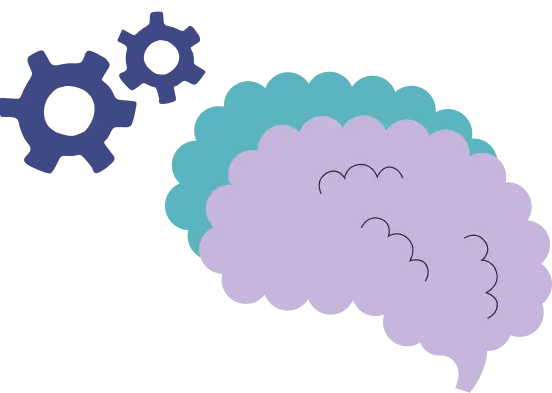Intensive Outpatient Program (IOP)
in New Hampshire
Our Intensive Outpatient Program in New Hampshire helps you or your loved one find lasting recovery without interrupting daily routines. At Live Free Recovery, we support you with effective treatment that fits your schedule and lifestyle.
What Is an IOP Program?
An IOP is a flexible addiction treatment option. It provides more support than standard outpatient programs but doesn’t require staying overnight. Think of it as the middle ground—perfect for those who need real support without full-time residential care.
In an IOP program, you’ll receive counseling and group support several days a week, helping you build healthy coping skills to stay sober. We also provide gentle and discreet drug testing to keep you on track without disruption.
How Our Intensive Outpatient Treatment Program Works
At Live Free Recovery, our IOP sessions run three to four hours a day, several times a week. This schedule means you can keep working, going to school, or caring for your family while getting quality help. What makes our program stand out is our caring, personalized approach and the availability of supportive detox options, including alcohol detox, that smoothly transition you into our outpatient care.
IOP Therapy Options
Our intensive outpatient program provides multiple therapy options to meet your unique needs. Each therapy type supports different aspects of recovery, allowing you to heal and build new skills. Through these treatments, you’ll learn how to handle daily struggles, develop healthier ways of thinking, and gain emotional strength for long-term sobriety.

CBT helps you notice and change negative thoughts and actions. You’ll learn practical ways to manage stress and avoid using drugs or alcohol.
Dialectical Behavior Therapy (DBT)
DBT teaches ways to handle strong emotions, improve relationships, and stay calm during stress. It helps you build clear strategies to handle tough moments.
In group counseling, you talk with others who face similar struggles. Sharing your experiences helps you feel less alone and gives you fresh ideas for staying sober.
Individual therapy means you talk one-on-one with a counselor. This personal approach helps you tackle your challenges and reach your recovery goals.
Family Therapy
Family therapy brings your loved ones into your recovery process. This helps to improve communication, build understanding, and strengthen support within your family.
The Benefits of IOPs
Choosing an intensive outpatient program at Live Free Recovery can truly transform your journey to sobriety. In our treatment programs, we offer a warm and caring place where you get strong support without putting your daily life on hold. Key benefits of choosing our IOP include:
- More affordable than inpatient care, making treatment accessible for more people.
- Comprehensive care that addresses both addiction and mental health through dual diagnosis treatment.
- Strong community support through meaningful group therapy sessions.
- Flexible scheduling so you can continue work, school, or family activities without disruption.
- Effective relapse prevention strategies to help you stay on track long after treatment.
- Personalized attention in individual therapy sessions to overcome your specific challenges.
PHP vs. IOP
Partial hospitalization programs (PHP) offer more intensive daily treatment than IOP. With PHP, you’ll spend about 5-8 hours each day at the center, usually 5-7 days a week. On the other hand, our IOP involves fewer hours and fewer days each week. It’s perfect if you’re stepping down from higher levels of care or if you need structured support that lets you keep a normal daily schedule.

Is This Addiction Rehab Program Right for Me?
IOP is the best choice if you need consistent, structured support without round-the-clock supervision. This program might be ideal for you if:
You’ve recently completed detox and need continuing care
You have a stable and supportive home life
You’re balancing work, school, or family responsibilities
You’re committed to relapse prevention
Regular outpatient therapy hasn’t been enough support
Receive IOP Treatment at Live Free Recovery
Choosing Live Free Recovery means choosing compassionate, personalized care in a welcoming environment. We also offer connections to sober living homes, ensuring a stable and supportive environment throughout your recovery. Our experienced and caring team is ready to help you reclaim your life from addiction. Reach out today, and together, we can take the next step toward lasting sobriety.
Frequently Asked Questions
What happens in an intensive outpatient program?
In an IOP, you attend counseling a few days each week for 3–4 hours each day. You’ll have group and individual therapy, learn ways to manage triggers, and build support—all without staying overnight.
How long does an IOP typically last?
An IOP usually lasts about 8 to 12 weeks, but it depends on your recovery needs. Your counselor will help decide what’s right for you.
Can I keep my job while attending an IOP?
Yes, you can keep your job while attending an IOP. Sessions are flexible, usually offered in the morning, evening, or weekend, so you can keep up with work, school, and family life.
Does insurance cover intensive outpatient programs?
Many insurance plans cover intensive outpatient programs. It depends on your plan, but our team at Live Free Recovery can help you check your coverage and explain your options clearly.
